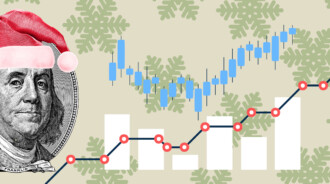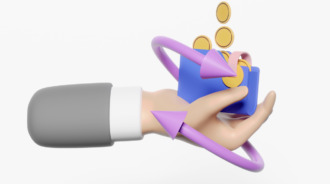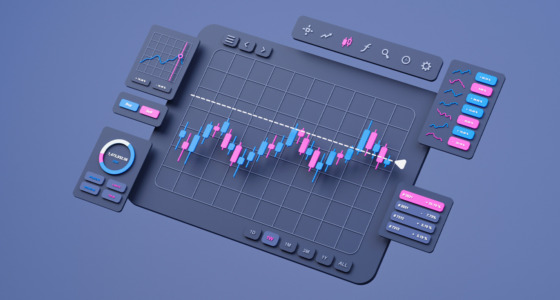

Let’s establish one thing: trading is not a fraud. It is a legal and legit activity that millions of people engage in. But the internet makes it easy for scammers to trick people into giving away their money. To combine the two statements together — trading is not inherently fraudulent, but online trading frauds exist. Today, you’ll learn how to spot a scam and what types of scams you may come across.
The 2011 UBS rogue trader scandal is one of the biggest trading frauds in the world. Kweku Adoboli, a former trader for Swiss investment bank UBS, illegally traded away $2 billion and wiped off $4.5 billion from the bank’s share price. For three years, he was using the bank’s funds for unauthorized trades and entering false information to hide risky trades before he was arrested.
Separating fact from fiction
Not all traders are rogue traders. Not all trading platforms want to defraud customers.
Most of the activity in financial markets is done by multinational corporations, and they made sure there are mechanisms and policies in place to regulate the activity. After all, they are trading millions of dollars daily.
As for retail traders, there are government trading standards that work to protect consumers and support legitimate businesses. However, because government agencies can’t keep up with numerous online platforms, it’s your responsibility as a consumer to spot trickery. You need to come to terms with the fact that the industry has some bad actors. But it’s not the fault of any particular trading asset or a class of assets.
Will you get ripped off by CFD trading?
A CFD (Contract for Difference) is a derivative product that allows you to speculate on price movements in either direction without owning the underlying asset. For example, if you buy a stock CFD, you won’t qualify for dividends, but you’ll be able to mimic a traditional trade for a lower cost.
CFDs are popular instruments that may potentially bring a good reward — the main thing is to find a reliable platform that will keep its promises.
Is it possible to get returns from FTT?
FTT (Fixed Time Trade) is a basic type of trading that involves predicting the price of an asset in a certain amount of time. These trades can have an expiration period of as low as a minute or go up to 60 minutes (some platforms can also offer higher timeframes).
You have the freedom to decide the asset you want to trade, the expiry time, and the position size and type ( rising or falling markets). The return will depend on your presiction. So, there is nothing intrinsically fraudulent about FTTs. Although, you should watch out for schemes that refuse to credit funds to customer accounts, giving the whole industry a bad reputation.
Trader complaints relating to fraudulent platforms
The Securities and Exchange Commission and similar agencies all around the world receive many complaints of fraud associated with Internet-based trading platforms. Most of these complaints fall into the following categories:
1. The customer can’t withdraw or reimburse funds
This happens when the platform refuses to credit the funds deposited by the user. Their personal account shows nothing, while the balance on the payment provider service says the transaction was completed successfully. The “company” might even contact the user and ask to send the payment again.
In other cases, the customer closes a position at a profit, but they can’t move their funds from the trading account. Once again, the “company” won’t be helpful. They cancel withdrawal requests and ignore any attempts to communicate.
2. Identity theft
Identity theft happens when a customer’s personal information is stolen and used to impersonate them. The information collected can be used to gain access to different areas of digital and real life.
3. Manipulated software
These complaints claim that trading platforms manipulate their software to distort prices and payouts. Some even offer automated trading tools that are programmed to bring losses. Or some of the technical analysis tools may show incorrect information and interferes with informed decisions.

Fraud advisory: how to stay safe
Now is the most informative part of the article — actionable tips to avoid online trading scams.
Signs of a fraudulent trading platform
- Promises of very high returns in a short period of time
- Requirements to enter lots of personal information (not to be confused with standard KYC)
- Lots of free funds and other incentives to start trading
- Suggestions to open an account in another country to avoid local regulation
- Very limited payment options
- No actual information about the company
Possible persuasion tactics you may come across (and shouldn’t trust)
- Any combination with the word “guaranteed” — e.g., “XYZ is guaranteed to rise double”
- “No down-turning market”
- “Let the program do all the trading for you!”
- “Trust this senior vice president at this investment firm and purchase this exclusive course with fool-proof strategies”
- “Buy now or you’ll miss your chance”
- “Once-in-a-lifetime offer”
- “Everyone is buying this stock/coin/currency pair/etc.” or the opposite: “No one knows about this stock, but this analyst knows it’ll skyrocket!”
What to check for before you start trading
- The company’s registration status and business background
- Your obligations if you register and start trading
- A written risk disclosure statement
- Available assets and technical tools
- Security policies
- Individuals’ performance records (if available)
While traders may blame trading platforms for their losses without a reasonable basis, sometimes those companies really are at fault. Be thorough — it’s your funds that’ll be on the line. If you can’t find enough verifiable information about the company’s background, don’t trade with them, make any deposits, or share your personal information.








